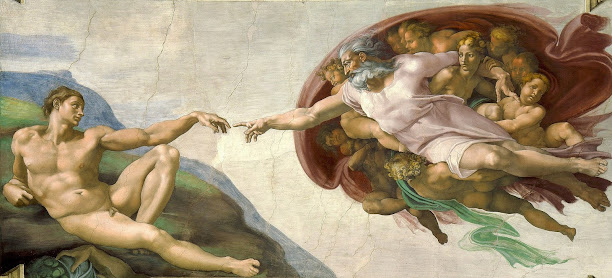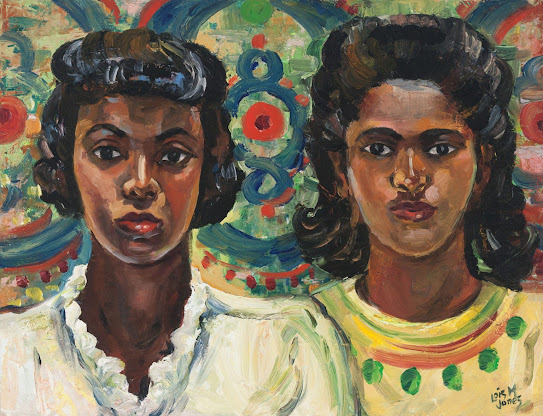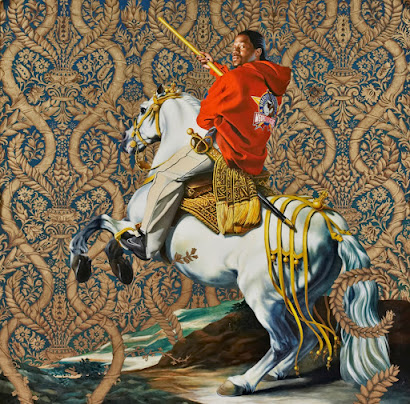A Comparison of The Plague to Corona Virus
There are a lot of passages in The
Plague that feel eerily familiar considering our current circumstances. From
the fact that the characters are unsure what the illness in Oran is and what it
is capable of, to the authorities in the town hesitating to reveal the dangers
of the illness to the townspeople, it feels like a novel based on the year
2020. Two passages from this reading in particular struck me as being very true
to what we are seeing happen in the United States. The first passage occurs shortly
after Rieux admits that the disease in Oran is likely a plague, and he begins
to think about the death tolls of plagues: “Figures floated across [Rieux’s]
memory, and he recalled that some thirty or so great plagues known to history
had accounted for nearly a hundred million deaths. But what are a hundred
million deaths? […] since a dead man has no substance unless one has actually
seen him dead, a hundred million corpses broadcast through history are no more
than a puff of smoke in the imagination. The doctor remembered the plague at
Constantinople that, according to Procopius, caused ten thousand deaths in a single
day. Ten thousand dead made about five times the audience in a biggish cinema.
Yes, that was how it should be done. You should collect the people at the exits
of five picture-houses, you should lead them into a city square and make them
die in heaps if you wanted to get a clear notion of what it means. Then at least
you could add some familiar faces to the anonymous mass” (35-36)
I
think this passage does well addressing the impersonality we experience towards
deaths we don’t have our own connection to. At least half of the people in the
United States know that Corona Virus is real and so are the reported death
tolls. We of course know that the needless nearly a quarter of a million deaths
are devastating, but it is difficult to fully grasp the severity of this issue
when you haven’t been directly affected by it. I imagine that even if one has
been personally affected by the virus, it is still very difficult to imagine so
many people getting the virus and/or dying of it. I try my best to be careful
because I’m terrified of anyone in my family or myself getting the virus, but I
know that I have a very different relationship with the virus than someone who
has lost a loved one because of it. I’m afraid of the virus, rightfully so, but
aside from what I have seen on the news, the gigantic impact of Corona Virus is
still somewhat of a “puff of smoke in the imagination” and the people who have
gotten it are largely “an anonymous mass” to me and to many people who have had
the same fortune. And while this lack of personal experience with Corona Virus
does not prevent me from being cautious, it seems like it does other people
(more on this later).
The second passage that I feel has a
strong connection to current events occurs after Rieux’s thoughts of Grand are
described, the two part, and Rieux is left with his thoughts: “[Rieux] realized
how absurd it was, but he simply couldn’t believe that a pestilence on the
great scale could befall a town where people like Grand were to be found […]
and he concluded that the chances were all against the plague’s making any headway
among our fellow citizens” (43). Though people often logically realize that
something awful could happen to them, they still hold the mindset that they are
not the one it will happen to, like Rieux. I think that for many people, Corona
Virus is no different.
From what I gather of the mess that
has been going on for the last eight or so months, both of these points from The
Plague not only hold true to people’s reactions and experiences during the
pandemic, but also come together in people’s heads and create a perfect storm
for neglecting one’s responsibilities to the general public. I’m not going to
pretend that I have done everything exactly right since the beginning of the
pandemic, but we all know that tons of people are doing absolutely nothing to
control the spread of the virus. Aside from the fact that an insane amount of
people think that the virus is a hoax, I think a lot of people still have the
mindset that 1. Nobody they know has the virus, so there is almost no chance of
them getting it or spreading it, and 2. they think that they can’t possibly be
one of the people to get the virus for one reason or another, just like Rieux.
I’m eager to see how these two points
of Rieux’s play out in the novel. I hope you enjoyed this mostly ranting blog
post, and I’m curious to know what you guys think.




Yeah, the part where he is talking about how many bodies there are and how it is difficult to imagine such a loss of life resonated with me too. I cannot imagine how many people have died of Coronavirus, much less those who have caught it. Camus does a good job creating the mindset of someone in a plague.
ReplyDelete